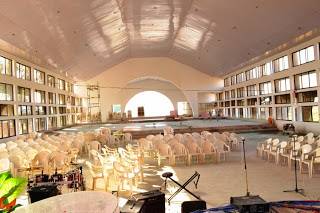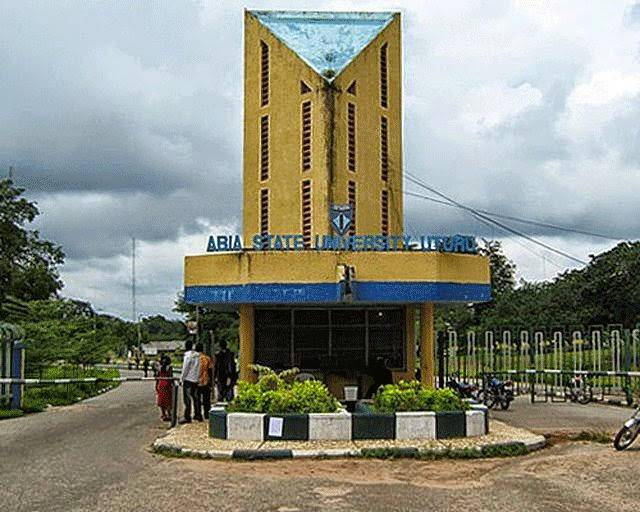Caleb University

About Caleb University
The University came into existence following its approval by the Federal Government of Nigeria in 2007, which was sought after by the Proprietor and Chairman, Dr Oladega Adebogun. Academic programmes at the University started fully in 2008, with the University opening its doors to its first set of 141 students across two colleges. Currently, the institution offers over 16 undergraduate degree programmes and postgraduate programmes across four (4) colleges. Most of the programmes at the University have been duly accredited by the National Universities Commission (NUC) and other relevant professional bodies.
Caleb University’s unique selling points are its serene campus with a picturesque topography, an ideal setting for study and reflection, uninterrupted academic calendar, e.t.c. It has a mission to create a unique institution committed to the pursuit of academic innovation, research and community service.
Caleb University Colleges And Courses Offered
The University runs a Collegiate system and has about four colleges offering over 16 departmental programmes in diverse fields.
College of Social and Management Sciences
Accounting
Business Administration
Economics
Mass Communication
Political Science and International Relations
Criminology, Peace and Conflict Resolution.
College of Environmental Sciences
Architecture
Building
Quantity Survey
College of Pure and Applied Sciences
Biological Sciences and Biotechnology
Chemistry and Biochemistry
Mathematics, Statistics and Computer Science
Applied Sciences
College of Postgraduate Studies
The college runs only Masters and Postgraduate Diploma (PGD) programmes. They include the following:
MSc. Architecture
MSc./PGD Computer Science
MSc./PGD Accounting
MSc. FInance
MSc./PGD Mass communication.
In addition, the University also has a business school for aspiring entrepreneurs.
Caleb University Admission Requirements
The University has provision for prospective undergraduates and postgraduates in very specific fields. You can read the list of courses above to know the courses offered.
Admission Requirements for Undergraduates
Admission into the University is relatively selective, and students have to go out of their way to show that they want the admission. The admission officers carefully scrutinize the applications as applicants are accessed based on their JAMB, WAEC, NECO, NABTEB, IGCSE, e.t.c scores. Only students with the highest scores and qualifications are eventually selected.
In addition to the above, the admission requirement at the University also includes:
Applicants must possess a minimum of five (5) credit passes in SSCE/GCE O’LEVEL/NECO/NABTEB or equivalents at no more than two (2) sittings obtained in subjects relevant to the proposed field of study. The 5 credits must compulsorily be in Mathematics, English and 3 other related subjects.
In addition, applicants must register, sit for and attain the prescribed cut-off mark (usually 180) in UTME.
Applicants may also be required to sit for an entrance examination as well.
Admission Requirements For Postgraduates
As stated earlier, the University only has provision for masters and postgraduate diploma programmes across its colleges. A prospective applicant must be a graduate of a recognized University with an average grade point of 3.0 on a 5.0 CGPA scale. Other requirements may include:
Graduate certificate with verifiable grades and required grade point average.
Academic transcript from University attended.
SSCE or equivalent results
NYSC discharge certificate.
In addition to meeting all the above, each applicant is expected to have a minimum of one-year work experience, preferably at the mid-level of senior management level.
As a tool which provides up to date information targeted at prospective/verified students and members of the institution, All inquiries about the institution can be found on the University website at calebuniversity.edu.ng.
Facilities At The University
Students are drawn to the University because of its serene campus with nature’s gift of flora and fauna asides from its unique academic system and rapid academic calendar. The University boasts of magnificent structures and buildings which are complementary to the greenery and vegetations across the institution. Caleb University also has a standard library which has over 12,200 volumes of books and is a leading library for research and teaching.
The University is also home to basic amenities found in any higher institutions such as hostel accommodation for students, lecture theatres and halls, science laboratories, college buildings, academic blocks, an ICT centre, a health centre, a sports complex, e.t.c. Remarkably, the University also has a bakery and a printing press.
Things To Know About Caleb University
For travellers who intend to visit and for prospective students, here are a few awesome things to know:
Security
The University is situated in a very secure location.
Best Time To Visit
During office hours on weekdays, the University is open to inquiries, study and exploration.
Most Common Visitors
At the University, be sure to find students, staffs and education enthusiasts.
Caleb University Fees
The university has released its school fees schedule for the 2017/2018 academic session to be paid every semester by both new and returning students across its colleges. We’ve compiled a list of the school fees schedule below:
College of Social and Management Sciences: N189,500.
College of Pure and Applied Sciences; and Environmental Sciences: N189,500
Courses like Statistics, Physics, Building, and Quantity Survey pay N194,500. You can find a detailed list of the school fees by clicking calebuniversity/schoolfees.
Ways Of Travel
By car and public transport
What To Bring
["Educational materials","Seminar necessities"]
Notable As
an institution of higher learning
Reason For Loving Place
It has a serene ambience
Historical Incidence
["Ranked 75th Best University by 4icu.org"]
Nice Things About Place
It is conducive for learning
Type Of People Who Visit
Students, Academics
Entry Fee
₦0 - ₦1,000
Why Was It Built?
due to the falling standard in public sector education and the demand among most parents for schools with high academic standards, as well as the inculcation of Christian values
Things To Do
["Enroll for part time or full time courses","Partake in the social and academic events happening on campus"]


